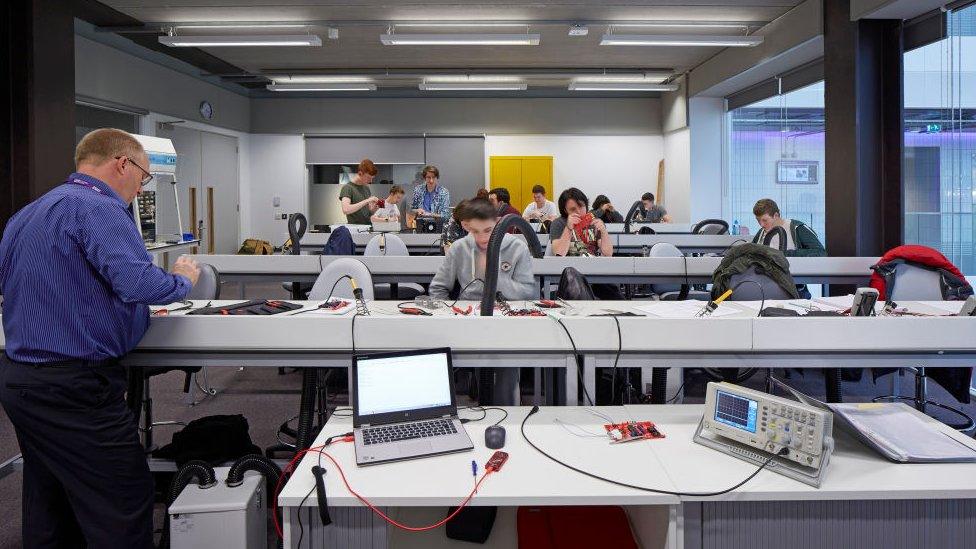University student complaints over courses hit record
- Published
- comments

Complaints from students in England and Wales about their university courses reached a record high last year.
More than a third of the 2,763 complaints to the Office of the Independent Adjudicator (OIA) were related to the impact of pandemic.
The amount of compensation given to students exceeded £1.3m, it said.
A report suggested that staffing issues, industrial action, and delays in submitting complaints from 2020 were behind the high figures.
As a result of the Covid pandemic "some students found that they weren't getting the learning experiences that they reasonably expected" said the OIA.
It said this explained in part why the total number of complaints submitted in 2021 was 6% higher than the year before.
By far the largest category were complaints about how courses were delivered.
Some students complained about being unable to access in-person facilities like laboratories, while others were unable to pursue their studies abroad.
Many complained about staffing issues, including poorly prepared substitute teachers and key experts in their field leaving the university.
The increased dependence on remote learning was also an issue, with many highlighting technical failures affecting their learning.
"Some students struggled with digital literacy, especially in online timed exams," the report added. "For others their limited typing skills affected their performance."
The National Union of Students (NUS) said "digital poverty" was a big issue for some students and many others were struggling financially - with some using food banks and buy-now-pay-later loans for support.
An NUS official said the high number of complaints was "no surprise" and students were "at breaking point".
Complaints in the report that were considered "justified", at least in part, include:
A group of masters students who were refunded half their tuition fees after they complained about their practical arts programme and how it had been advertised
A student who was seriously injured while at university and not given information about the Disabled Students' Allowance
Medical students who were studying at an overseas campus where the facilities were not properly finished in time for their arrival
One case that resulted in just over £68,000 worth of compensation, the highest figure that was awarded, the report said.
But other students found the move to remote education had made learning easier, with disabled students benefiting in particular.
"Students told us that they valued having more control over how and when they could access their learning experience," the OIA said.
Record compensation
In addition to the high number of total complaints, the OIA said the compensation awarded was "significantly higher" than previous years.
It suggested this may have been because the pandemic sometimes made it challenging to find practical solutions to complaints.
PhD and postgraduate students were overrepresented in the complaint logs, submitting just under half of them despite accounting for 27% of the English and Welsh student population.
Responding to the report, Universities UK said the high number of complaints was concerning but stressed it represented only "a small fraction of the total student population".
The organisation, which represents universities, said its members had responded well to the highly disruptive impact of Covid.
"The overwhelming majority of students continue to receive a world-class education," it said.

WHAT IS LIFE LIKE IN MOSCOW NOW? How Putin's war on Ukraine has changed Russia
THE BENEFITS OF ECCENTRIC EXERCISE: Why going down stairs is better for you than going up!

Related topics
- Published25 April 2022

- Published6 April 2022

- Published4 May 2022
